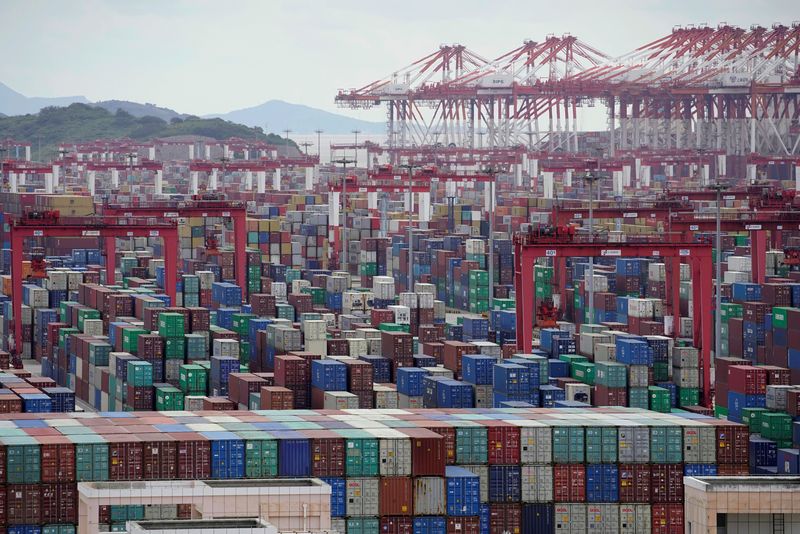BEIJING (Reuters) - China's export growth is expected to have slowed in July, adding to signs of weakening global demand, while imports likely picked up slightly, a Reuters poll showed on Friday.
Exports likely grew 15.0% last month from a year earlier, narrowing from a 17.9% expansion in June, according to a median forecast in a Reuters poll of 20 economists.
"Final demand for Chinese goods is now softening. After a pandemic-induced surge, advanced economy retail sales are dropping back to trend," said Julian Evans-Pritchard, Senior China Economist at Capital Economics said in a note last week.
Export momentum could moderate further in coming months, with China's official July factory survey signalling a contraction in orders.
"The robust export growth seen over the past two years is really behind us and is set to decelerate over the next few quarters as major developed economies enter recessions amid a more synchronized global slowdown," said Nomura in a note.
Imports likely rose 3.7% in July versus a year ago, the poll showed, higher than the 1.0% growth in June, partly boosted by infrastructure investment.
"China's import momentum (is expected) to pick up in the second half, supported by demand for machinery, equipment, and commodities related to investment in infrastructure and strategic sectors," said Oxford Economics analysts in a note.
In July, 3,876 major projects started construction, involving total investment of 2.4 trillion yuan ($355.25 billion), the Securities Times said on Thursday.
With the economy on shaky ground after a sharp COVID-induced slowdown in the second quarter, authorities are doubling down on an infrastructure push, dusting off an old playbook to prop up the economy, pledging 800 billion yuan in new credit quota to fund big projects.
China's trade surplus is likely to have narrowed to $90 billion in July from a record high of $97.94 billion in June.

The trade data will be released on Sunday.
($1 = 6.7559 Chinese yuan renminbi)
(Poll compiled by Devayani Sathyan and Jing Wang; Reporting by Liangping Gao, Ellen Zhang and Ryan Woo; Editing by Kim Coghill)